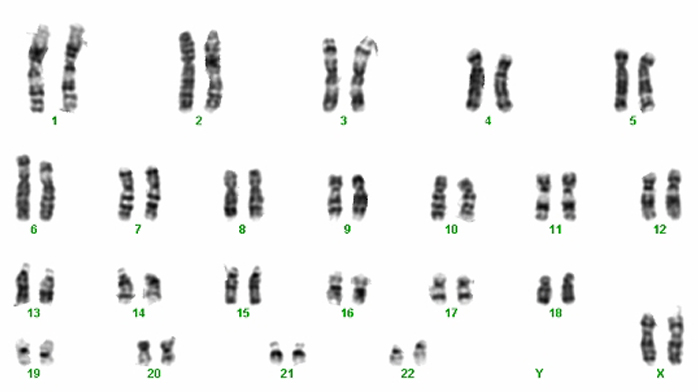Prenatal genetic testing
You can be told if your unborn child is free from a given genetic disorder whilst you are still pregnant

How can we help you?
Non-obligation guidance
Before babies are born, prenatal genetic testing enables us to identify the mutations that cause a given genetic disorder. When the parents themselves are affected by the disorder or are carriers of it, genetic testing tells us whether the foetus is affected.
What is prenatal genetic testing?
Genetics is an essential tool for medicine since there is a hereditary component to a considerable percentage of health issues in humans. Any illness that has a genetic basis can be diagnosed using molecular biology techniques. A genetic test of a given illness consists of identifying the mutation in the gene that causes that illness. Therefore, identification can be completed before the baby is born and parents can be told if the foetus is affected by the illness or not.
What is prenatal genetic testing used for? What is its purpose?
Prenatal genetic testing is a genetic analysis that is performed during pregnancy. It lets patients know whether the mutation that has caused a genetic disorder in their family has been transmitted to the foetus.
The aim is to understand if the foetus has inherited a genetic disorder from the parents or not. Depending on the result and their beliefs, parents can decide whether or not to continue with the pregnancy. Terminating the pregnancy stops the illness from being transmitted whilst continuing with the pregnancy when a child has been affected means that the condition can be treated as early as possible.
What does a prenatal genetic test entail?
Amniocentesis or chorionic villus sampling needs to be performed in order to obtain a sample of the foetus. The sample is used to extract DNA and perform the analysis. The analysis itself consists of identifying the mutation in the gene that either one or both parents carry.
When is prenatal genetic testing advisable?
It is advised in couples who have a genetic disorder or are carries of one and who wish to know if their future child is affected by it or not. The aim is to avoid transmission or to treat the condition as early as possible.
What is the procedure if there the genetic analysis indicates that there is an abnormality?
Appropriate genetic guidance by qualified personnel is advisable so that the result can be explained. The couples’ alternatives vary depending on the results and include both conservative and invasive options.